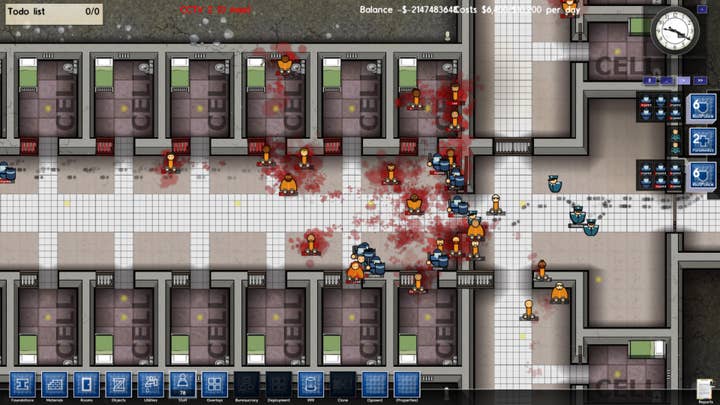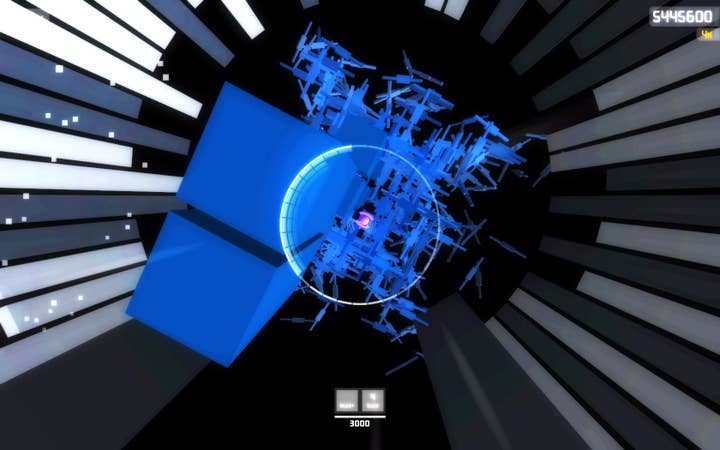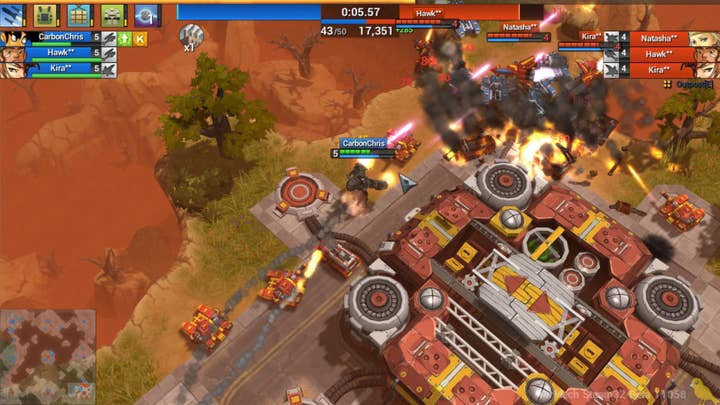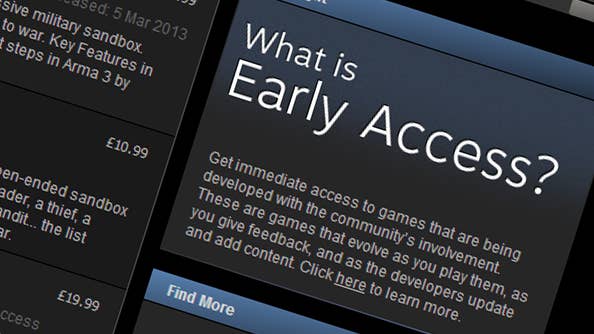Steam Early Access: From Underdogs to Alpha Dogs
Indies talk about the doors opened by paid alphas with Valve's new service
In the past few years, there's been a sharp rise in the number of alternate funding and distribution options available to developers. Of those, Kickstarter has been the king of the hill when it comes to crowd-sourced funding. The site allows studios to reach out directly to fervent fans and ask them to be a part of the development of titles that normally would not get a shot at life.
Valve has also built a strong and passionate community on its Steam digital distribution service. Steam's impressive userbase has helped the service evolve with new additions like Steam Greenlight, which allows fans to decide which games end up with a publishing deal. In March of this year, Valve announced another addition to Steam's long list of features for developers: Steam Early Access. Early Access lets developers connect with fans in a slightly different way than Kickstarter, with users being able to buy into paid alphas for promising titles.
Steam Early Access is growing slowly, with only 20 games in its catalog as of this writing. GamesIndustry International spoke to a few participating developers about their experiences with the service and why they chose the paid alpha model over another alternate funding option like Kickstarter.
All of the developers we spoke to were approached by Valve prior to the launch of Early Access. They told us that Valve saw an opportunity to provide another Steam feature for a growing market. In fact, two of the developers - Carbon Games and Introversion Software - were already offering their own paid alphas via their official sites.
"Valve came to the UK. For the last couple of years, they've wanted to have meetings with the UK indies, which I've always thought as being pretty forward-leaning of them. They asked us to put together both of those meetings," said Introversion managing director Mark Morris.
Introversion's latest title, Prison Architect, was launched as a paid alpha in September of 2012, almost six months before Early Access' launch.

"We had a chat with them over dinner and expressed our concerns and fears; our worry that because we were in alpha, the nature of [Prison Architect], the price point, and other things. How that would work with Steam. So they went away and then I took a call from them a week later. They asked me, 'How would you guys feel about taking exactly what you've done on your own site and replicating it on Steam, at the same price point with the same tiers?' bar the physical stuff we've offered. We really leapt at the opportunity to do it."
"I think - being a little bit arrogant here - that because we'd been quite successful with [Prison Architect] on our own, I think Valve looked at that and thought, 'This is something that we want to get involved with and support.' I think we made a case and then Valve turned it into their own thing and came back at us with an opportunity," added Morris.
The PC version of Carbon Games' AirMech is available on the studio's official site as well as Steam Early Access. Other versions of AirMech have launched on Android, iOS, Google's Chrome browser, and the Ouya. Carbon Games game director James Green believes Valve's handling of Dota 2 convinced the Steam operator that another option was needed.
"Valve asked us, probably because we were one of the cases that really needed a system like this. As you may have noticed with Dota 2, Valve did not previously have a way to do a proper open beta without fully releasing a game. So in their case, they gave out keys, but that's a bit impractical for a small developer," explained Green.
For independent developers, crowd-funding drives like Steam Early Access and Kickstarter offer a way to develop a game without living in complete or near-poverty. Dejobaan Games' president Ichiro Lambe told us early funding takes some of the pressure off of developers. Dejobann has two titles in Steam Early Access: Drop That Beat Like an Ugly Baby and Drunken Robot Pornography.
"Revenue splitting is popular among indie teams nowadays, so it means that team members get their cuts earlier. It makes us more relaxed; unless we're not doing well, in which case it alarms us. It's a real morale boost to see that folks like our game enough to pick it up," said Lambe.
"With Darwinia, Multiwinia, and all of [our previous games], we ran out of money. On every occasion, to varying degrees"
Introversion Software managing director Mark Morris
Introversion's Morris explained to us that early revenue via paid alpha and Early Access was a way to prevent some of the issues the studio ran into with earlier efforts. He agreed with Lambe that early revenue and seeing players' concrete interest in Prison Architect improved studio morale.
"With Darwinia, Multiwinia, and all of [our previous games], we ran out of money," said Morris. "On every occasion, to varying degrees. With Darwinia, I think we didn't have any money for about a year or something before it was released. With Defcon, the bank account was at zero on the day we launched. It puts this desperate pressure on you to get the game up to the barest minimum standard, shove it out of the door, get the cash from sales, and then fix bugs that you wanted to fix before."
"What we tried to do with the Early Access stuff is get the revenue before we finished, so that we can be more relaxed about the development process. We're working harder, we're more motivated. We know that we don't need to worry about cash, we know we can put in all the featuresets that we want to be in there. We feel an obligation to keep pushing it for those who've already bought it," he added.
Since backers have paid for a game in its alpha state, they tend to be more vocal about the direction and development of a title than players of a free or closed alpha. Dejobaan Games' Lambe told us that player feedback is very beneficial during the development process.

"Ugly Baby's been available as a playable pre-release since the Portal 2 alternate reality game, so open dev for that is familiar to us. However, since we made both titles available for Early Access, we've learned how to assess different types of feedback. Players are really good at seeing an in-development game and saying, 'I like this,' or 'I don't like that.' It's tougher to ask them to look at Level 12 in a vacuum and analyze it, when there should be 11 levels that come before it to inform them on how to play the next one," said Lambe.
Lambe said that with a traditional release, a bug or bad demo could tank public opinion of a title and negatively effect the full launch, leading years of development to go "down the drain."
"This sort of thing happened with our 2009 title, 'AaaaaAAaaaAAAaaAAAAA!!!'. We actually had people say, 'I played the demo and I picked up the full game despite it. I'm glad I did!' Early Access is freaking fantastic for testing out a release without actually releasing. With Early Access, we're able to try various gameplay modes, enemies, control systems, trailers, raps, and so forth. To fine-tune it all," said Lambe.
"We go to the users and ask, 'here are the next three or four features' and then they will direct development in that regard," explained Introversion's Morris. "Giving people [that choice] is quite powerful. If we start working on a feature that they consider to be exciting, it could be that item four or five in the list that we'd intended to do never gets touched on. Because of that, they have a large impact on the design process."
"Also, when we make mistakes in [Prison Architect], we find out about them really quickly. As soon you roll it out, you suddenly get a lot of people complaining about it, so you can immediately kill the feature or change it before it has a number of knock-on effects," Morris added.
Carbon Games' AirMech is one of the few free-to-play games on Early Access. As a multiplayer title, AirMech benefits from robust early testing for bugs and game-breaking PVP combinations.
"We've always taken input from players from day one of our private alpha, so Early Access isn't really a change for us there," said Carbon's Green. "We're definitely not a typical case for Early Access after looking at the other games. For us, it's just about being upfront about the game being in beta and not final release. We're still aggressively adding major features to the game and we believe that any multiplayer game should be well battle-tested before calling itself 1.0."
Introversion Software has made $2,378,405 via its paid alpha and Steam Early Access, across 72,749 backers. Morris told us that roughly $1.2 million came from Introversion's paid alpha program and around $1 million came from Steam Early Access. Both funding drives have been comparable, but Morris believes that Steam has a longer tail than an indie's paid alpha.
"I think that the long tail will be a bit longer on Steam"
Introversion Software managing director Mark Morris
"We generated a graph of our launch and the Steam launch and we overlaid the two. They were remarkably similar. They had the same kind of spikes and they were at the same level. Steam is at the same level that we were performing at when we launched, but we've taken a massive drop-off from where we've started and we've yet to see that on Steam. I think that the long tail will be a bit longer on Steam," he explained.
One thing Steam Early Access provides over a personal paid alpha is access to Steam's other services. Introversion was enthusiastic about other options like Steamworks, while Carbon Games found more benefit in casting a wider net for its title.
"We're about to launch Alpha 10 in a few days and the big features that we're implementing are Steamworks features. Steam handles things like updating, rather than everyone having to come to our site and download the build. All the other Steamworks features also come into play, so we're able to deliver a better featureset to customers," said Introversion's Morris.
"We've been allowing people to spend money in AirMech long before we were even on Steam. As a free-to-play game you don't get an early boost from players like traditional paid games, so our case is different than most," explained Carbon Games' Green. "Our alpha/beta players have already seen great benefits just from having access to the game early, no matter which platform it is on. We're happy with the [Steam] arrangement, and we have no preference for which one of our many platforms gamers want to play AirMech on."
All three studios had different reasons for not pursing the Kickstarter model for early funding. For Dejobaan, Valve's name carries a significant amount of weight with PC gamers.
"I like Kickstarter and have funded a number of projects, but for gamers, Early Access means that a game's got Valve's 'ok' on it. Players know they've vetted it and that when it's complete, it'll be a Steam-quality title. And if the game sucks, we'll have let both all our fans and Valve down," said Lambe.

Carbon Games felt that Kickstarter wasn't a good fit for what the studio was offering with AirMech and running a funding drive would've detracted from the game's development.
"We've never considered Kickstarter seriously," said Green. "Our observation is that it works well for nostalgic games with a large following or really well-known dev personalities. I can humbly say that we don't fall in either of those categories. As we are a micro-team, running a Kickstarter would take our full attention, and we feel we can make the game better by working on it than spending time raising money that way."
Introversion felt that a paid alpha offered far more control than running a Kickstarter.
"There are a couple of variables that you need to determine when you run your Kickstarter. One is how long you're going to run it for and the second is how much you're going to ask for. When we launched [Prison Architect], we had no idea how popular it would be. We never sat down and thought, 'we need to generate this amount of money to finish Prison Architect'. We'd already put about a year and a half into Prison Architect at the time; we knew we were going to finish it, we knew we were going to release a game. The level of interest would color how much time we were going to spend on it," said Morris.
"If you look at it now, we've made $2 million. I doubt we would've made $2 million through Kickstarter. Through Kickstarter we might've asked for $50,000 and then we would've lost all this revenue, which in turn becomes resources to make the game better."
"The other thing is: how long do you run it for? We're picking up lots of customers on a daily basis, we want to keep the thing ticking over. If it runs out of steam, that's when we want to turn it off. We didn't want to make those decisions before we launched the alpha program," he continued.
"We'll lose the Kickstarter subscribers, the people that are just monitoring Kickstarter. What extra value does Kickstarter offer? Not a lot."









